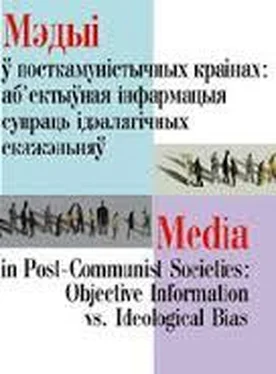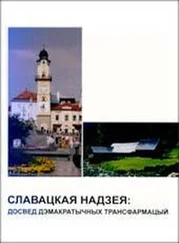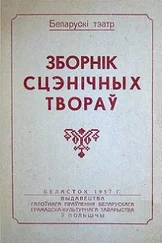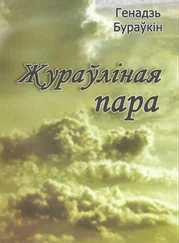The talk here is not only about the native language, which, indeed, is the soul and the soil of national self-assertion. Many other negative things add up to the dramatic language situation, which also made a negative input to the current situation within the society. People’s character and behavior have changed. We observe increasing aggressiveness, boorishness, lies, intellectual and physical laziness, indifference, alcoholism.
My mother, who perceived extremely painfully all the ugly processes and negative changes within the nation, would often say with a bitter sigh: “We are living like in the Barbarian street!” While a child, I could not yet understand what sense she was putting in her description. Later, it became clear to me that the mother meant our main trouble: immaturity, instability, and uncertainty about the fate.
Belarusians live and behave themselves as if they are not on their land, where they are masters, but as if they are at a railway station. They are all the time busy waiting for a rescue train, which will arrive one day and take them somewhere into a stable and wealthy being. At a railway station, with all that fuss and noise around, one can steal, deceive, curse or beat someone heavily, knowing there will be no punishment. The train will come, you board it and that’s it — none will be the wiser! The current political fuss around the planned unification of Belarus and Russia deepens the railway-station mood, the feeling of uncertainty among our people.
Totalitarianism, unforgotten and still undefeated because primarily based on fear, prevents Belarusians from rising to their feet and believing in their own forces. Stalin used this human weakness fully and achieved what he wanted. He abused and “raped” millions of concrete people and the whole nations. Stalin still continues to rule our life from his grave’s darkness, as the current “local dictators” are copying his experience on the whole post-Soviet space. For, fear, just like physical diseases, is passed from generation to generation. An intelligent, honest and freedom-loving person gets lost under totalitarian pressure. He fears not really for himself, but for his loved ones, for the cause he began and what has become the meaning of his life. Let alone the notorious electorate. In a totalitarian society, the brainwashed and politically culturally and socially uneducated majority can be far more dangerous and despotic than a dictator itself.
The sick Belarusian society is exposed to a triple influence of the mass media. Why triple? Because, there are three currents in today’s informational space: Lukashenka regime’s propaganda mouthpiece, independent press and the Russian media.
The realities of the Belarusian life prove very explicitly that with all its primitivism in methods — blatant lies and populism, the regime-serving propaganda machinery affects a quite huge part of our society, keeping it stoned. The regime takes by its quality and massiveness, for it has all television and radio channels and both the central and local newspapers in its hands. But, it has recently become clear that this is not enough. Totalitarism stands no dissent. Having taken care of the most significant opposition politicians and factory directors, the regime is now heading towards a total cleanup of the whole ideological and informational space. It is aiming to place civil institutes, trade unions and others under its unconditional dictate. The cleanup has touched on almost everything: Academy of Sciences, universities, colleges, lyceums, gymnasiums, and schools. “Unreliable” specialists are fired from their posts. The independent press has faced an especially severe attack.
Literary publications have not remained without attention, either. In breach of the legislation and ethical standards, a “holding kolkhoz” named “Editing and publishing agency “Literatura i Mastactva” (Literature and Art) was created in place of literary magazines? Many people were surprised: “What kind of threat to the regime can literary magazines pose?” But, they should not have thought that way. The totalitarian bureaucracy began fighting with the Belarusian literature not today, but right after getting to power. It is worth recalling the massive attacks on the prominent writers, known both in Belarus and internationally, have not stopped in the state media for years. It is not accidental. Traditionally, the Belarusian literature, which at all times fought for the national dignity, for the creation of the Belarusian state and defended the ideas of humanism, truth and justice, enjoys attention and respect in our society. Even now, that just like in 1930s, the regime considers writers as “public enemies”. Meantime people tend to listen to the literary people’s word. That’s why, the authorities need to deprive them of the possibility to express their thoughts.
After the creation of the holding, literature has again found itself in the grip of censorship. Honest people resigned from their magazines in a manner of protest. Many writers took back their manuscripts and halted cooperation with the censored magazines. But, the regime counts on “taming” the writers. For the regime, it is important to display to the society that even the dissent have given up. Of course, just like in any other environment, there have been collaborators and traitors amongst writers, too. However, it is very instructive that they do not represent the basis of the Belarusian writers organization. The extraordinary 15th Congress of the Union of Belarusian Writers brilliantly demonstrated the unity of literary community, their unbound civil and patriotic position in defense of independence and sovereignty of Belarus, our language and culture. The congress also passed an important resolution and has become one of the most significant events in the society over the past several years. The writers have not put out the white flag, and will continue to take a firm stand in the future.
And now let’s talk about the independent media. Being under permanent pressure from the authorities and fighting for survival in this difficult economic and political situation, independent media have worked a lot, not only bringing objective information to people and shaping the public opinion, but also in the field of political, social, legal education of the population. The role of independent media in democratizing the Belarusian society can hardly be overestimated.
But, however it may be, I should take this opportunity to raise a very important for the independent journalism problem: the state of its national identity. I understand that this topic, never seriously touched before, is very complex and sensitive. I know I will face a lot of criticism, yet I will a take a risk.
The thesis that journalism always has an international nature and carries out a universally common mission — to bring objective information to the public — seems to be incomplete and lacking accuracy, because it does not take into account the important role, which journalism plays in shaping a nation and promoting national identity and constructing a statehood. You simply cannot do without it. Our journalism permanently run across specific national, historical, political, social, cultural and spiritual realities, which one should know and comprehend. Yet, our journalism often tends to avoid or disregard them.
I will take the language factor as an example. Our country is called the Republic of Belarus. Belarusians as the indigenous population make up the majority, or 78%. Under the latest census returns, over 80% of population called the Belarusian language as their mother tongue. Of course, calling it a mother tongue does not necessarily implies having a good command of it. But, this national progress within the society, which reveals itself even at the level of sub-consciousness, should seem to be strengthened and developed. However, nearly all the independent press is Russian-language. One can refer to the fact that many publications are determined by national features, which are expressed in the motives and topical approaches, and lexical specifics. Well, that’s true, but who can deny the indisputable: the Russian-language environment will inevitably leave its trace on the very essence of journalism. Some Belarusian journalists behave as if they are Russian missionaries or Russian correspondents in Belarus. Their language, thinking and assessments are all only Russian.
Читать дальше




![Невядома - Быць (або ня быць) сярэднеэўрапейцам [сучаснае польскае мысьленьне]](/books/49075/nevyadoma-byc-abo-nya-byc-syaredneeЎrapejcam-such-thumb.webp)




![Ная Геярова - Институт проклятых. Сияние лилии [litres]](/books/407702/naya-geyarova-institut-proklyatyh-siyanie-lilii-litr-thumb.webp)

